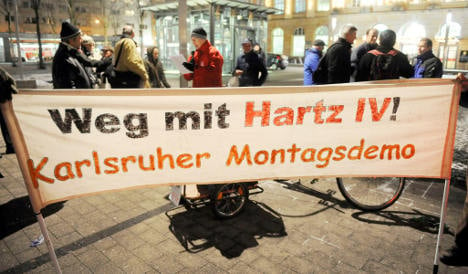The Karlsruhe-based Constitutional Court knocked back an application from a North Rhine-Westphalian couple who argued they should be reimbursed for six months in 2005 when they were systematically underpaid.
The same court ruled in February that the government had to revise the way payments to 6.5 million Hartz IV recipients were calculated. The present method of calculation breached the constitution, the court said.
In the new case, the claimants, a couple from the city of Bottrop in North Rhine-Westphalia, claimed retroactive payments for the period between January and June 2005, when they were on long-term unemployment benefits.
During this time, they were receiving €814.95 a month – €311 each in unemployment benefits plus €192.95 between them for housing and heating. In their complaint, they claimed they should receive an extra €564.30 per month in backdated payments for this period.
The court disagreed, saying the government could continue using the present, unconstitutional system of payments until a new system was introduced.
Furthermore, new “hardship” regulations established by the previous ruling, could not be applied retrospectively, the court decided.
Their couple’s case had previously been rejected by another federal court.
As a result of the February ruling, the government must undertake a massive review of the current system by the end of the year.



 Please whitelist us to continue reading.
Please whitelist us to continue reading.
Member comments